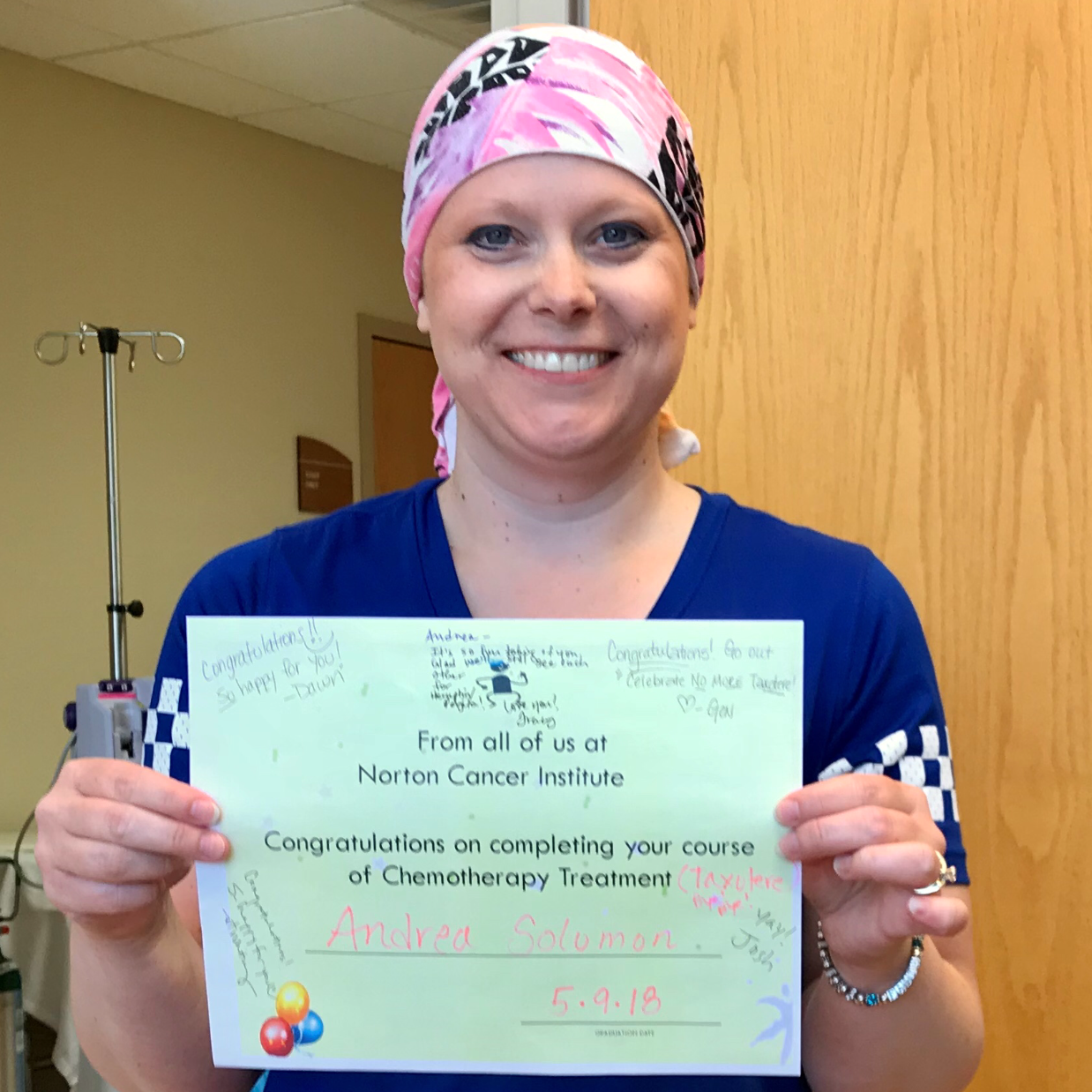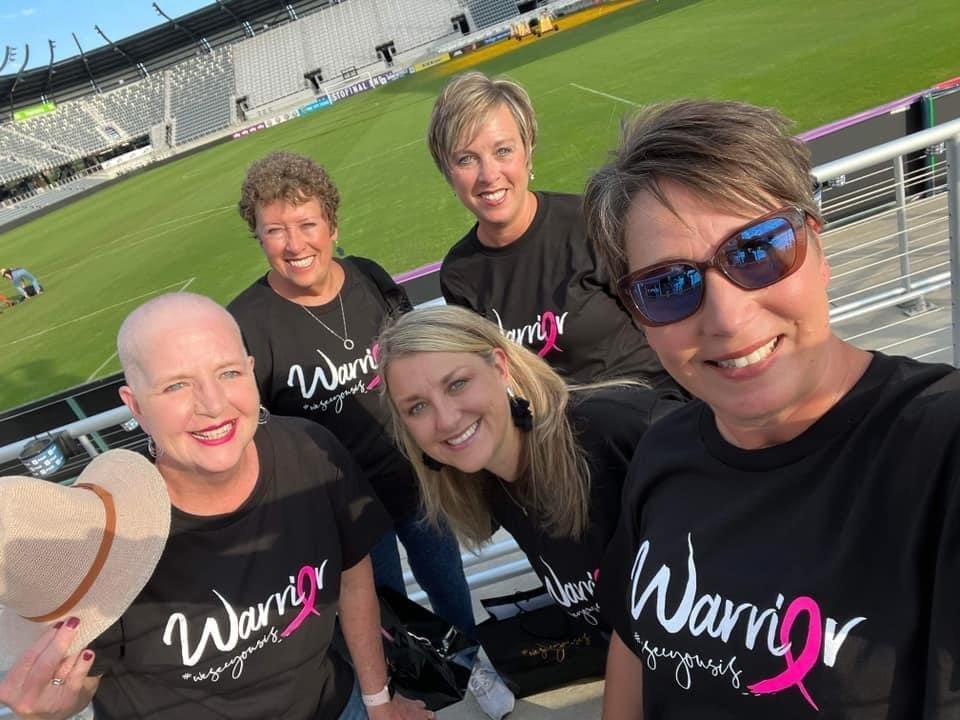
When Treatment Doesn’t End: Monitoring, Wellness, and Quality of Life for MBC Patients
Metastatic thriver receives a certificate ofo chemo compeltion in 2018. Andrea is still being treated today for her metastatic breast cancer diagnosis.



The Importance of Social Support for Cancer Patients
Facing a cancer diagnosis can stir up feelings of uncertainty, anger, and isolation. These emotional challenges often arise alongside physical hardships, leaving patients in need of strong and reliable sources of comfort. Social support plays a critical role in maintaining emotional well-being during challenging times. It fosters a sense of belonging, reduces stress, and helps individuals feel empowered, especially when they’re fighting a serious illness.

What Is Immunotherapy?
Immunotherapy is a groundbreaking treatment approach that harnesses the power of the body’s own immune system to fight diseases, including cancer. This targeted strategy can lead to improved outcomes, fewer side effects, and, in some cases, long-lasting remission.

Find Support for Breast Cancer Recurrence
Facing breast cancer recurrence can be a deeply emotional and overwhelming experience. After completing initial treatment and hoping for a cancer-free future, hearing that cancer has returned may feel like a devastating setback. However, it is important to remember that recurrence is not uncommon, and support systems can make a significant difference in navigating this journey.

Breast Cancer Screening: Why Early Detection Matters
Breast cancer remains one of the most common cancers diagnosed among women in the United States. Understanding the importance of early detection, when to screen, and how to access these tests is crucial for reducing breast cancer mortality.

Novartis Super Bowl Commercial: A Controversial Message for Breast Cancer Awareness
The Super Bowl is known for bringing not only high-stakes football action but also some of the most memorable and controversial commercials of the year. This year, one ad that has captured widespread attention — and sparked a heated debate — is the Novartis commercial focused on breast cancer awareness.

Breast Cancer Diagnosis: Next Steps
A breast cancer diagnosis can be overwhelming, bringing a flood of emotions and uncertainty. Whether you’re grappling with fear, confusion, or shock, know that you are not alone. If you’re seeking guidance about what to do next, here are nine practical steps to take after a breast cancer diagnosis.

The Importance of Breast Cancer Research
The prevalence of breast cancer makes research into this specific type of cancer especially important. In this article, we’ll take a closer look at the impact of breast cancer research and how you can help support these life-saving efforts.

Stephanie Weeks: My Story
My name is Stephanie Weeks and I received a Breast Cancer Diagnosis when I was only 42 years old. Triple Negative, Aggressive, Invasive, Stage 3 and it was in my Lymph! It was like being in the ring with Rocky and taking blow after blow.

Kelly Karasiewicz: My Story
My Story: That’s such an interesting question, seeing as two years ago, I would have thought of it in such different ways. Once you hear the words, “You have cancer,” your story changes so much. When it’s metastatic, your life is completely changed, and how you look at everything is different. You are different. And no one understands unless they’ve heard the same thing.

Ilene Kaminsky: My Story
My life prior to my diagnosis with HR+ breast cancer with bone metastasis became the first steps in a long and difficult life's journey. My education stressed communications and probably defines one of my strongest attributes. My ability to digest and incorporate hordes of information has helped me to both navigate the incredibly difficult terrain I found myself on and arrive at the help I needed using the quickest route possible.

Christine Hodgdon: My Story
In April of 2015, I found myself alone and waiting in a sterile exam room for the results of a breast biopsy. I had found two lumps in my right breast, but the doctor assured me that a person of my age, and with no history of breast cancer in the family, the masses were not likely to be cancerous.

Jenn Griebau: My Story
My name is Jenn. I am 46 years old & have been fighting metastatic breast cancer for the past 7 years. I was originally diagnosed with stage 2b breast cancer 10 years ago. After a year of treatments, I heard those magical words – cancer free. This only lasted 2 ½ years before a hip fracture proved to have been caused by a tumor. It was then confirmed my cancer had returned.

Jamie Gallagher: My Story
In 2020, when I was 41, I asked my doctor if I needed a mammogram now that I was in my 40s. He said since I did not have any family history of breast cancer, I could wait until I was 45. Fast forward to one day in 2022 when I felt a lump in my right breast.

Sharon Ann Merritt: My Story
On April 2018, I was diagnosed with HER2+ breast cancer, after having a mammogram because of a nipple discharge. HER2+ (positive) breast cancer is when breast cancer cells have excessive amounts of a protein receptor called HER2 (human epidermal growth factor receptor 2).

Roseana Burick: My Story
I was 35, and on an assignment for work when I developed a rosy color in my right breast. I was worried and decided to have it checked out at my regular GYN appointment when I got home a few months later.

Alana Auslander-Price: My Story
My story begins in the fall of 2012, when I was 37 years old. I was in my 15th year as a high school band director, had a 3 year old daughter, and was trying to get pregnant with our second child. I began having severe pain in my left breast and, after a month or so of waiting to see if it cleared up with my menstrual cycle, I discovered a hard knot.
